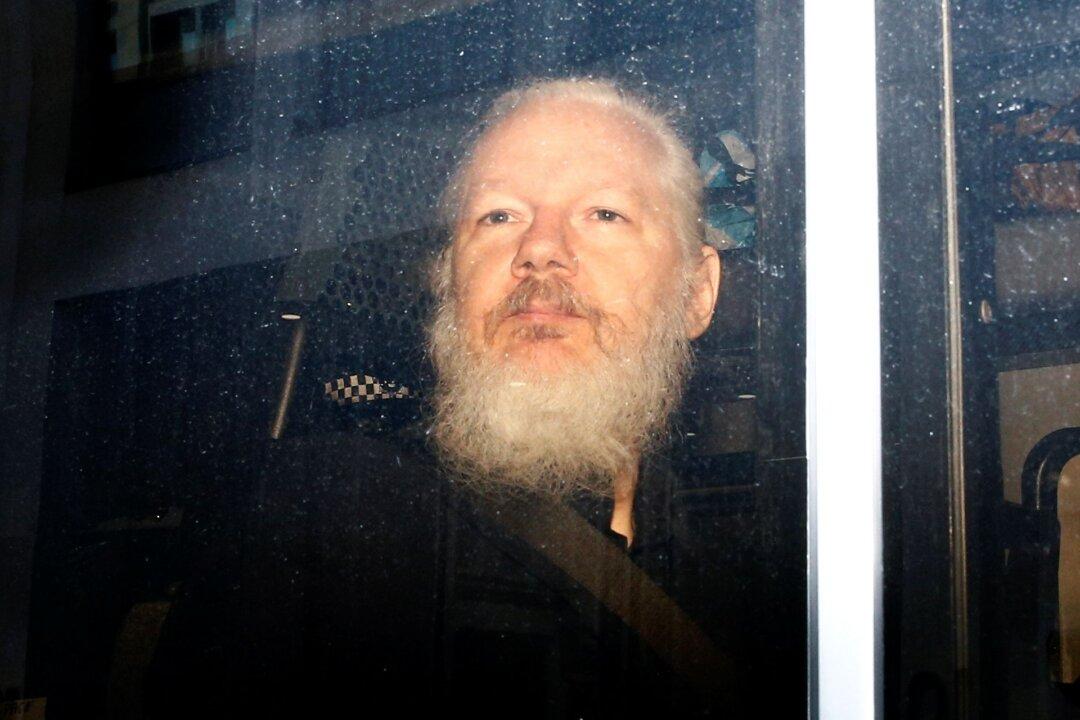WASHINGTON—The U.S. Justice Department has formally asked Britain to extradite WikiLeaks founder Julian Assange to the United States to face charges that he conspired to hack U.S. government computers and violated an espionage law, the U.K has confirmed.
“Mr Assange was arrested in relation to a provisional extradition request from the United States of America. He is accused of offenses including computer misuse and the unauthorized disclosure of national defense information,” a spokesperson for the Home Office, Britain’s internal security department said.





